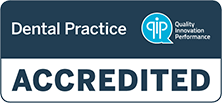You don't need us to tell you that there's a lot going on in your body during puberty. One thing you may not have given a lot of thought to is what happens to your mouth when your body starts producing all those extra sex hormones like oestrogen and progesterone. This sends a lot more blood than normal to your gums, increasing their sensitivity to plaque, and causing them to become more easily irritated by food particles. It's a condition you'll hear referred to as puberty gingivitis and it's hard to miss, leaving you with red, swollen gums that bleed more easily than usual.
If you take good care of your teeth and gums by brushing twice a day and flossing once daily, you probably won't develop this form of gingivitis. But it can crop up if some plaque or gingivitis was present in your mouth at the onset of puberty.
The good news is that puberty gingivitis can be easily treated with brushing and flossing, and regular professional cleanings by a dentist. If you end up with a more severe case, you might need to have two or more professional cleanings in a year to keep on top of things. This is why it's important that you keep seeing your dentist on a regular basis.
We get that eating healthy foods is probably not your first choice when you're with your friends, but eating well goes a long way to keeping your teeth and gums healthy.
If you've got braces, you need to make sure you're spending extra time to properly brush your teeth. This means taking out the removable parts of your braces such as elastics and bands, carefully cleaning around the wires and brackets and brushing all the areas of your teeth. If you have any questions about the right technique you should use, you just need to ask your dentist.
This information is courtesy of the Australian Dental Association


